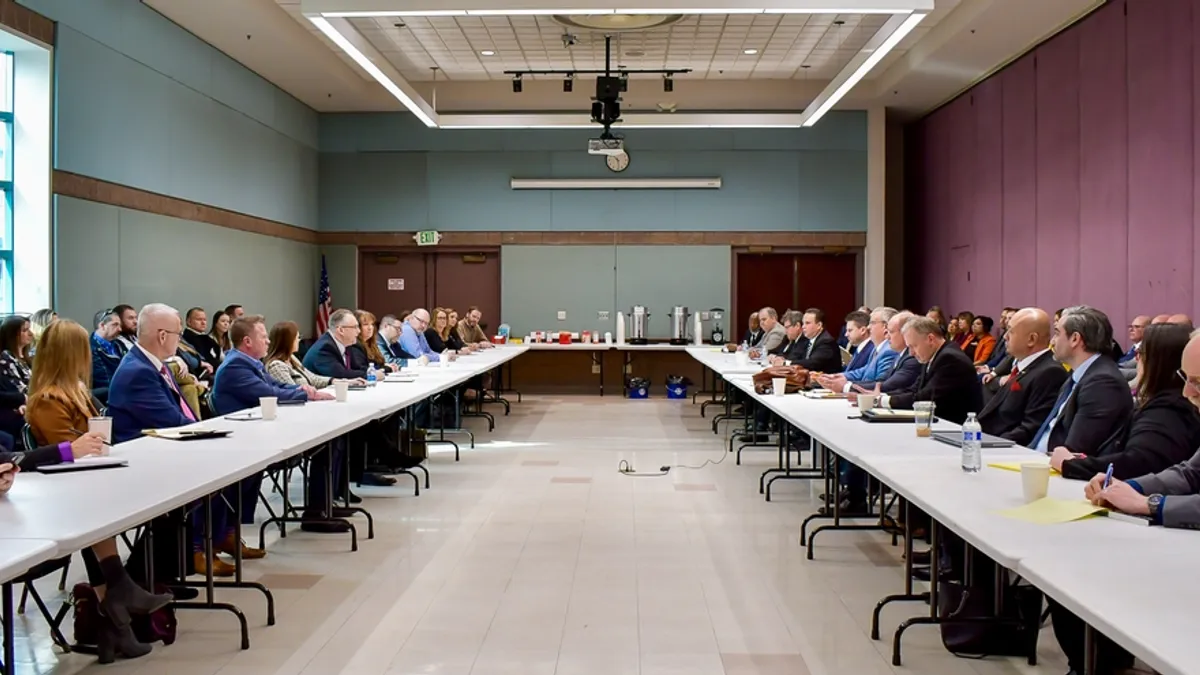Working as a product compliance officer today looks very different than it did a decade ago: The role has transformed dramatically as supply chains have become more globalized and regulations have grown increasingly complex. The evolving regulatory landscape has forced compliance professionals to adapt their priorities, responsibilities, and tools. For example, recent government and consumer scrutiny on per- and polyfluorinated substances (PFAS) has put compliance managers at the center of a legal, environmental, regulatory compliance, and product design battlefield. And so, a compliance officer's actions to collect and report PFAS data has become mission critical on a number of fronts like never before.
Let's explore some of the forces reshaping compliance management and how organizations can plan for business continuity through these changes.
The new nature of compliance: Sustainability and product data
The concept of compliance has grown, with environmental, social, and governance (ESG) expanding regulator expectations. Compliance officers have always been experts at understanding what goes into a product and who is supplying which components, but now many regulations require them to also collect ESG-related data about supplier activities, such as labor practices or environmental impacts.
For example, the Uyghur Forced Labor Act (UFLPA) requires companies to disclose whether they have any direct or indirect ties to forced labor in Xinjiang, China. This means compliance officers must conduct defensible forced labor due diligence and know what is happening at deeper tiers of their supply chains. It also adds researching legal ties between supplier entities to the compliance officer's plate, to ensure they aren't purchasing materials from a business owned by a sanctioned entity. And the UFLPA is just one example of many emerging regulations.
However, while ESG management is now an expectation for compliance, corporate sustainability is still an emergent discipline. Many compliance officers rely on the support of supply chain sustainability experts and solutions to collect ESG data and apply it to their regulatory reporting.
Ambassadors on the new global frontier
As supply chains globalized over the past decades, compliance officers had to adapt to a new regulatory landscape by learning how to engage suppliers across language barriers and understanding the cultural nuances of a supplier's country. For example, bribery is an accepted way of doing business in some countries, but it violates anti-bribery and anti-corruption requirements in many others.
In response, compliance officers have taken on educating suppliers and helping them improve their sustainability performance within their local contexts. Since supply chains were never built with sustainability in mind, compliance officers must now exert greater influence across complex global supply chains to keep organizational compliance goals on track.
Fewer resources, higher stakes
Compliance officers have historically been asked to do more with less. Today that means they’re expected to find more efficient, cost-effective systems to meet compliance requirements. In recent years, there's been an expectation from investors and the executive suite to go beyond the basics and demonstrate value-add. This means the real job of a compliance manager is to identify program efficiencies and cost savings, determine how supply chain data and interdepartmental goals are interconnected, and stay on top of technological trends.
Considering that many compliance officers evolve into the role — first having other responsibilities, then being asked to do product compliance and sustainability "on the side" — it can be difficult to increase output without adding to costs. Even meeting baseline compliance requirements is a challenge for small-to-medium-sized companies, which often only have one compliance professional. Demonstrating value-add to the organization is crucial, particularly in an environment where budget cuts are common.
Supplier engagement, supply chain data collection, and regulatory upkeep are prime targets for optimization. Companies should look to digital solutions, such as automated supplier engagement, to streamline these tasks. And because regulatory expertise is typically not an in-house competency, compliance officers can use managed services to handle program updates for complex regulatory changes.
Growing reliance on technology and data
Compliance has become increasingly data-driven. More than ever, organizations are dependent on technology, and compliance officers play a critical role in centralizing data across departments, consolidating reporting tasks, and providing a holistic view of the organization. This has led to a move away from traditional spreadsheets towards more advanced technologies. The role of a compliance officer has evolved in step to require a strong understanding of technology and its potential for driving efficiency.
Compliance in a connected world
Unlike compliance management of the past, the modern compliance officer must now be an orchestrator who ensures that different teams (research and development, engineering, production, and procurement) work together to fulfill compliance requirements. They cannot be an island; they must work cross-enterprise and have the right soft skills to foster collaboration and connect the dots between suppliers' individual goals and the larger organization's.
All these connections make being proactive crucial to a compliance officer's role. Being able to keep ahead of regulatory changes, supply chain disruption and component obsolescence risks, and technological shifts is key to protecting the bottom line and compliance track record.
For a comprehensive guide to planning a proactive 2024 product compliance program, download Assent's eBook, Budgeting for Compliance. It includes expert insights on 2024's top regulatory pressures and budgeting tips about where to allocate resources for the biggest impact.
About the author: Sue Fortunato-Esbach, Regulatory & Sustainability Expert, Product Sustainability
 Sue is committed to helping companies fulfill their legal requirements by translating legal complexity into technical efficiency. She is an experienced all-rounder in product compliance and environmental, health, and safety (EHS), with deep knowledge of regulatory requirements. Before joining Assent, Sue was the head of Heraeus Noblelight GmbH’s product compliance team.
Sue is committed to helping companies fulfill their legal requirements by translating legal complexity into technical efficiency. She is an experienced all-rounder in product compliance and environmental, health, and safety (EHS), with deep knowledge of regulatory requirements. Before joining Assent, Sue was the head of Heraeus Noblelight GmbH’s product compliance team.










